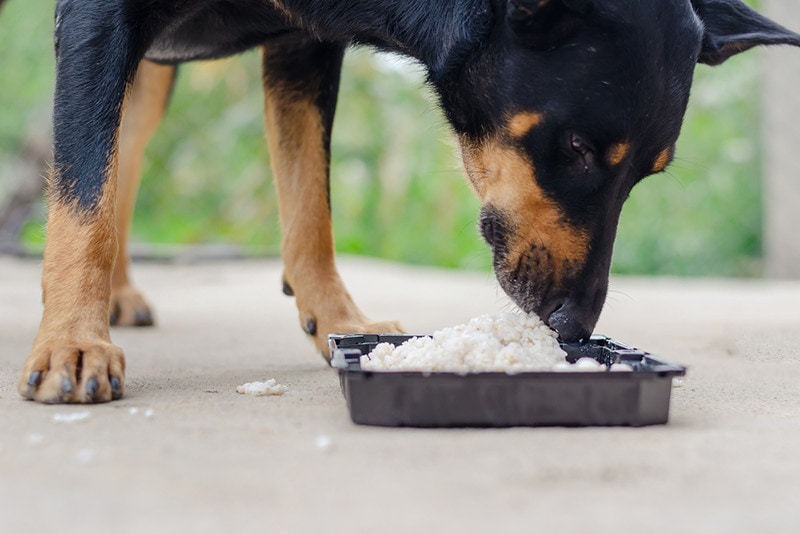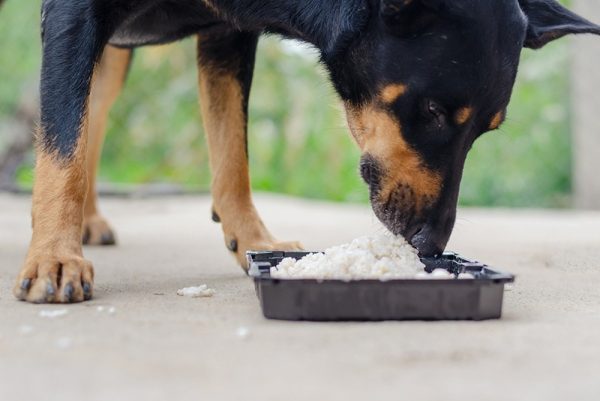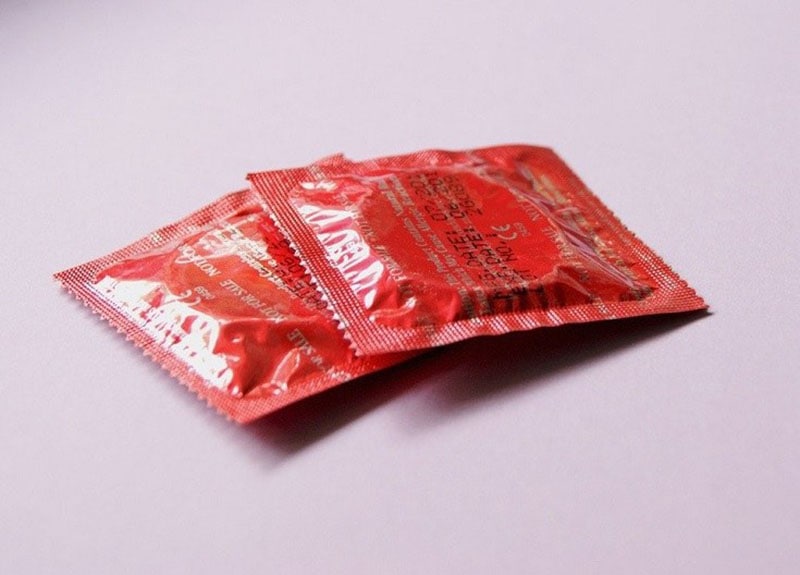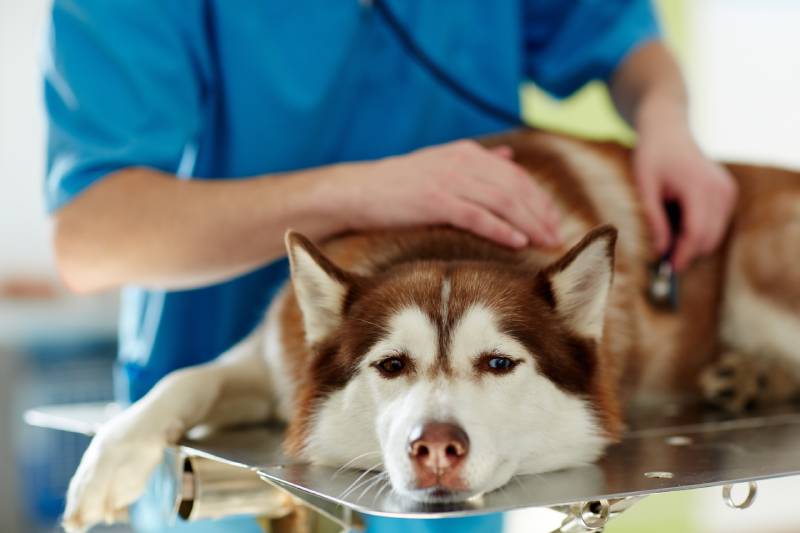Nowadays, canine allergies are discussed widely across social media. Food and supplement companies are claiming that the reason your dog is itchy is likely because of allergies to X, Y, and Z. But when it comes to canine allergies, what should you be looking for? What are dogs most typically allergic to? And should you be worried that your dog may be allergic to the rice that’s in their diet?
Dogs can be allergic to rice, but it’s not very common. Continue reading to find out more about dog allergies, and if your dog may be allergic to rice.
How Do I Know If My Dog Has Allergies?
In dogs, allergies – whether it’s from food, fleas, things in the environment, or irritants to the skin – most often manifest as itchy skin. In veterinary medicine, we call this pruritus. You may notice your dog licking their paws, chewing on their legs, or licking their bellies. When you look, you don’t notice any lesions or reasons for itching. Your dog may also be suffering from chronic ear infections. Frustrated, you continuously seek veterinary care, only to be told your dog likely has allergies.
With food allergies, your dog may suffer from vomiting and/or diarrhea as well. Unfortunately, vomiting and diarrhea are what we call non-specific signs. In other words, these abnormalities can occur with almost any illness, whether they are related to the GI tract or not. So there is no way you, or your veterinarian, can say that these abnormal signs are absolutely related to an ingredient in the diet.
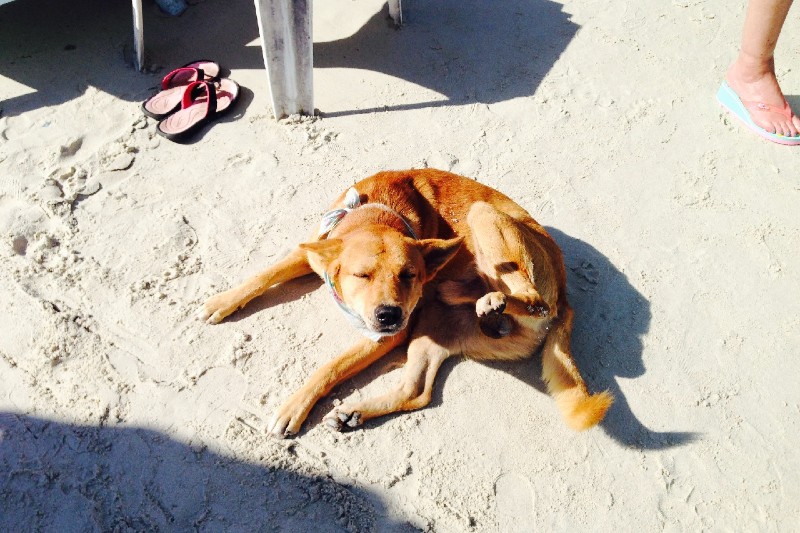
What Are Dogs Most Commonly Allergic To?
Most commonly, dogs react to a protein source in food, usually an animal protein. Also, contrary to popular belief, this typically will occur over time. When a dog eats the same protein, brand, or type of food for years, their body may become allergic to a protein source in that food causing their immune system to create antibodies to that item. This will trigger an immune response that causes itching, inflammation, and irritation, most commonly of the skin and ears.
While dogs can be allergic to grain sources, it is much more rare than proteins. So while your dog may react to foods with rice in it, making you think that’s the source, more likely there’s a common source of protein that is the actual culprit.
How Can I Get My Dog Allergy Tested?
While there are allergy tests available by skin testing and also by blood samples, these are not very sensitive and accurate. For food allergies, the best way to rule in/out that your dog is allergic to a certain ingredient is to do a food trial.
This is recommended to be completed with the help of your regular veterinarian, a board-certified veterinary nutritionist, or a board-certified veterinary dermatologist. Your doctor will look at all of the dog foods, people foods, and snacks your dog has been eating, sometimes throughout their life. They will then recommend a food that has novel proteins, or proteins your dog’s body has never come into contact with. Your dog will be on this diet strictly for months before you test them to see if they react again to certain ingredients.
Your veterinarian may also recommend what’s called a hydrolyzed protein diet. These diets are specially made by breaking up protein sources into small-sized molecules. Your dog’s body will often not recognize these pieces so they won’t trigger the immune system.
It’s important you do a food trial under the supervision of a veterinarian to make sure your dog is still receiving appropriate nutrients and a balanced diet.
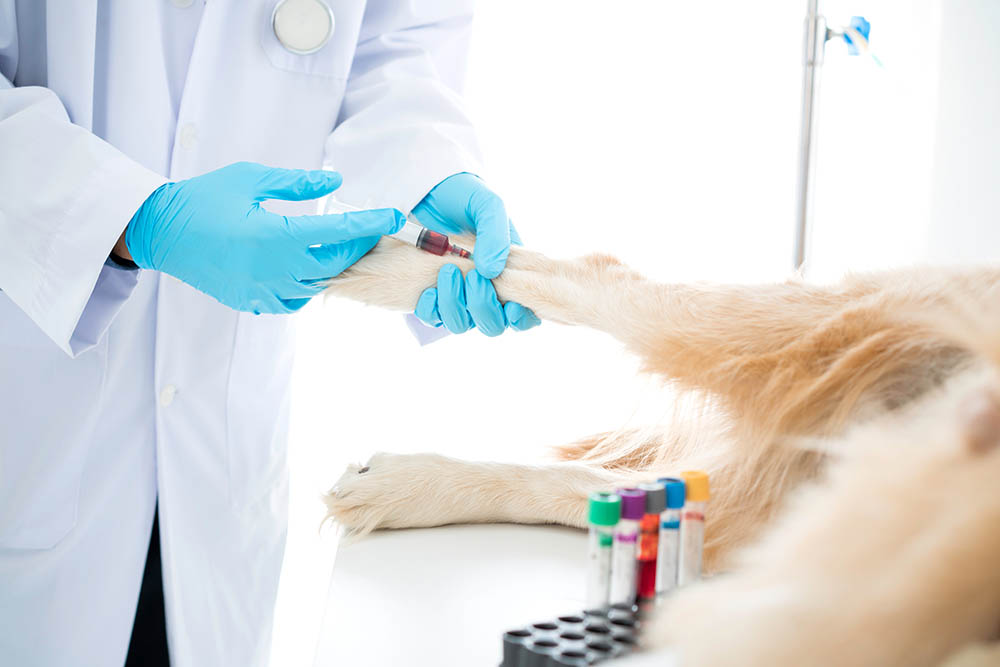
Can The Allergy Be to Rice In My Dogs Food?
Yes, but it’s not very common. As discussed already, food allergies in dogs are most common to animal proteins such as chicken, beef, lamb, and eggs. While some dogs can react to plant-based protein sources such as wheat gluten, potatoes, and carrots, it’s rare.
In general, food allergies are not as common as environmental and flea allergies. Endless “boutique” dog food brands have done a fantastic job marketing food allergies as a way to end all of your dog’s itching. These companies also jumped on the low-carb bandwagon. They extrapolated this from the human desire to eat fewer carbs and the rise of evil gluten, to make owners believe that these things are bad for their pets as well. While some of these companies may have a few good foods in their repertoire, overall they have been formulated and made to feed into people’s fears of allergies instead of formulated to be based on science and evidence.
Why Should My Dog Eat Rice or Other Grains?
Grains are extremely important to your dog’s overall health. White rice and brown rice are great sources of healthy grains, added to give your dog a balanced diet. If your dog is overweight, “cutting out carbs”, like you may do with yourself, is not a healthy way to get them to lose weight. Instead, it’s very likely they are receiving too much food, either dog or human, and simply gaining weight from excess quantity.
However, the most important reason you need to feed your dog grains like rice is to potentially reduce their risk of heart disease. With the rise of the boutique diets discussed above, veterinarians started to notice an increase in severe heart disease, often in very young dogs. Studies have now shown a link between grain-free diets, diets supplemented with peas, legumes, dry beans, and lentils and the development of heart disease in dogs.
It’s important to note that there are many ongoing studies occurring with these findings. Scientists and veterinarians across the country are trying to figure out what the exact link is. However, as of now, the commonality seems to be with both grain-free diets and diets supplemented with the above ingredients.
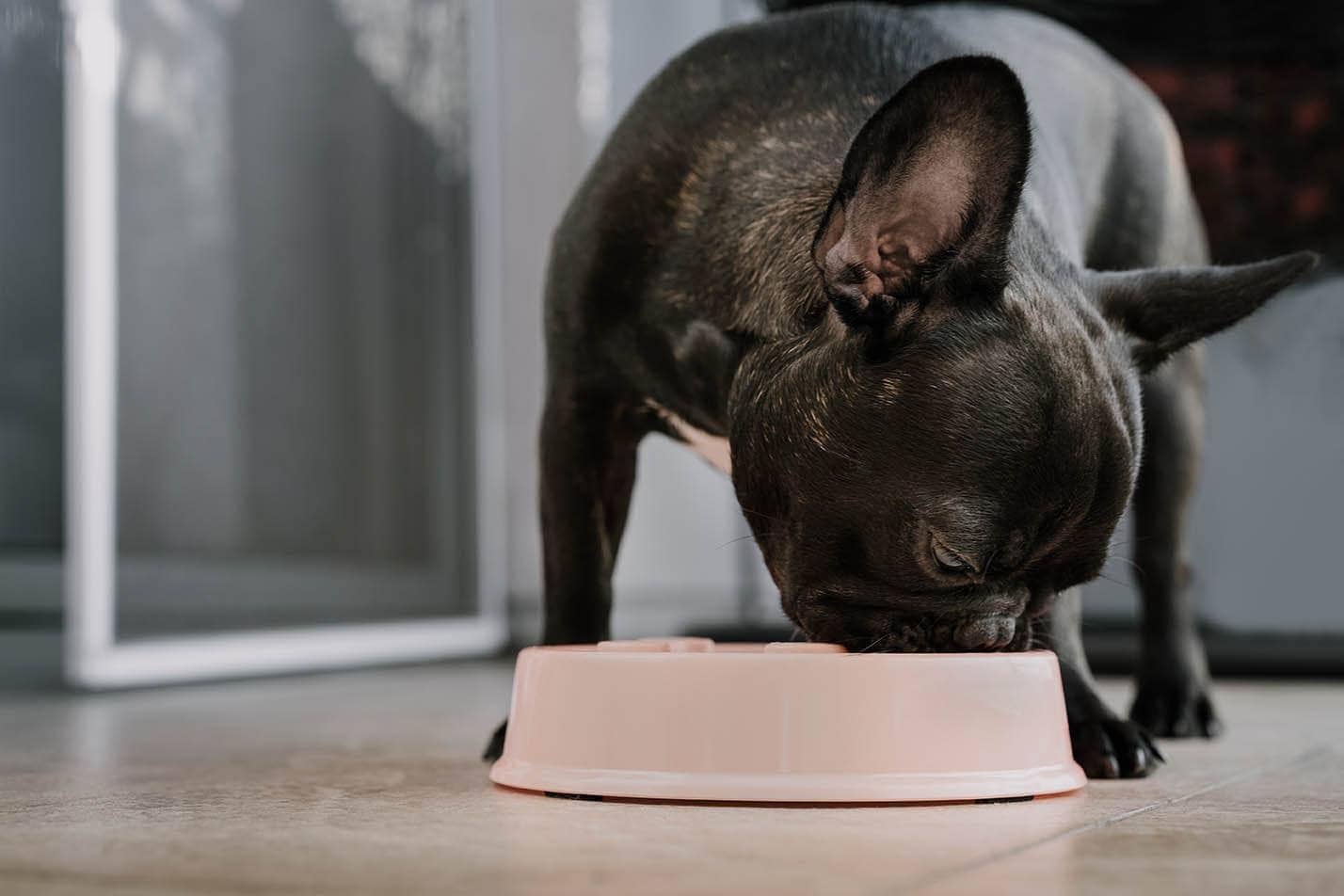
Final Thoughts
While your dog may be allergic to rice, it’s much more likely that they are allergic to the animal protein source in their food, or do not have food allergies at all. Dogs are much more likely to be allergic to things in the environment such as grasses, pollens, and weeds, in addition to fleas, more than food. However, if you notice that your dog is itching or always has an upset stomach when they eat rice, you should speak to your veterinarian about getting them on a food trial to rule this allergy in/out.
In general, grains are not only needed by your dog for a well-balanced diet, but may also help to prevent a serious heart condition. As always, speak with your veterinarian about what foods they recommend, especially if your dog is suffering from any type of allergy.
Featured Image Credit: Dmitriev Mikhail, Shutterstock

